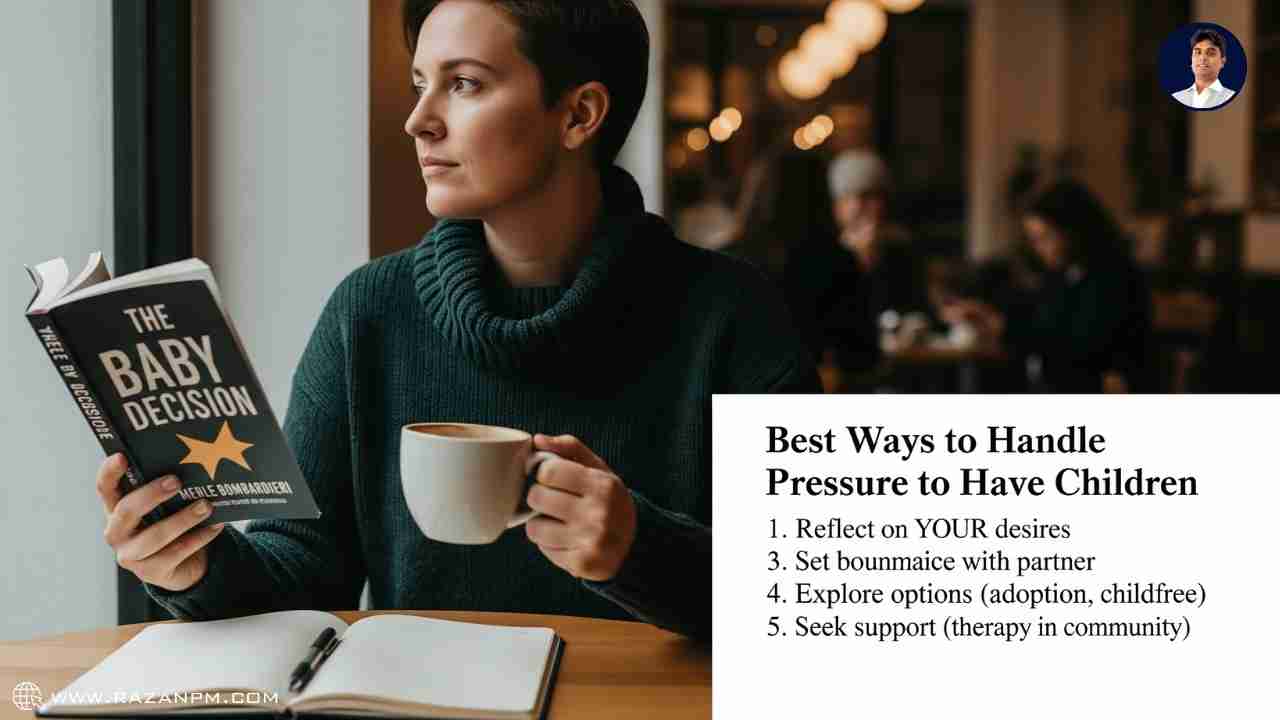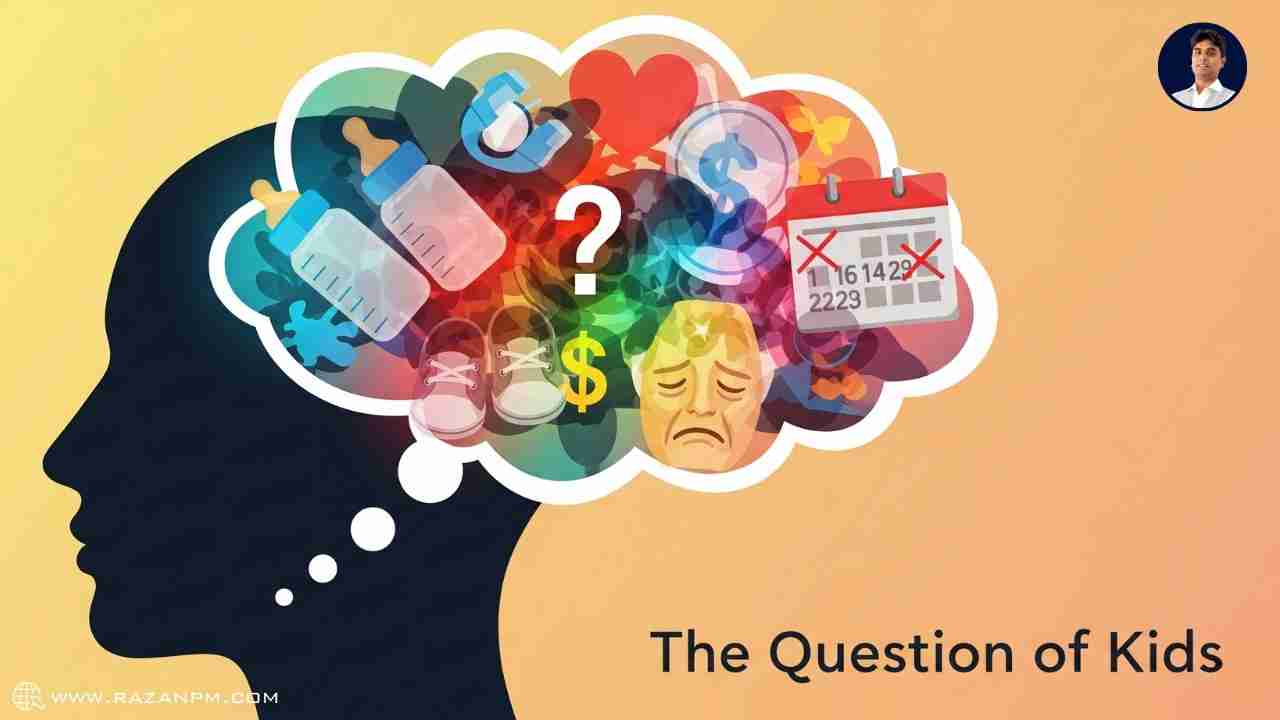Picture this: you’re at a family gathering, enjoying a perfectly innocent plate of samosas, when suddenly an aunt leans in and asks, “So, when are you giving us good news?” Suddenly, the crispy samosa doesn’t feel so light anymore. Your mind races—What should I say? Will they judge me? What if I hurt them? What began as a harmless question now spirals into worry, guilt, or even a sense of failure.
This is how small conversations often snowball into negative thoughts, creating unnecessary stress and sometimes even emotional pain. As a clinical psychologist, I have seen how recurring pressure around having children can leave deep mental scars if not handled with care. also read: 7 signs your communication style causes conflict

The expectation of having children is deeply ingrained in many cultures. Parents, grandparents, relatives—even colleagues—sometimes feel entitled to ask personal questions about your family plans. While the question may come from love, it often creates discomfort, anxiety, and sometimes emotional trauma.
Many people end up rehearsing answers in their head or avoiding gatherings altogether. Instead of being moments of connection, these conversations turn into stressful events. also read: how to fix silence and distancein your relationship
Clients often tell me how they feel trapped when this question arises. Some describe a heavy knot in their stomach, while others feel their throat tightening. A few even admit to feeling shame, as if not having children makes them less worthy in their parents’ eyes.
If you’ve ever sat in silence after being asked this question, only to cry later in your room, you are not alone. The pain is real, and so is the pressure. also read: breaking free from familypressure to have children

Here are some common signs that the question “When are you having kids?” may be taking a toll on your mental health:
These are not just passing emotions. Over time, repeated exposure to such triggers can affect your self-esteem and mental health. also read: spot the silent signs of love yourpartner hides
From a clinical perspective, repeated intrusive questioning can mimic patterns similar to generalized anxiety disorder (DSM-5) or adjustment disorder (ICD-10). The fear of judgment creates anticipatory anxiety—where you stress about the question before it’s even asked.
The brain perceives these moments as “threats,” triggering the fight-or-flight response. That’s why your body might tense up, your heart races, and your mind either freezes or rushes to justify itself. It’s not just in your head—your nervous system is reacting as if danger is near. also read: how miscommunication in textsaffects you

Research highlights that social and family pressure around fertility can significantly impact mental health. A 2020 study published in the Journal of Psychosomatic Obstetrics and Gynecology found that individuals facing repeated questions about childbearing reported higher levels of anxiety, depressive symptoms, and strained family relationships.
Another study from Fertility and Sterility revealed that couples under societal pressure to conceive often reported lower relationship satisfaction and increased emotional stress.
This means the problem is not just emotional - it is backed by clinical data that shows how damaging these questions can be. also read: why couples hide their realfeelings in relationships
A client of mine, let’s call her Anita, once shared how family gatherings felt like examinations she could never pass. Every holiday dinner became a silent battle. She longed for her parents’ approval but dreaded their questions.
One evening, after a particularly painful exchange, she broke down. She said, “I feel like I’m disappointing them just by existing without children.” That sentence stayed with me.
Through her journey, I realized the solution wasn’t about teaching her clever replies. It was about helping her retrain her mind to respond differently—so she could hold her peace and dignity while also respecting her parents’ emotions. also read: feeling judged for not having kids?here’s the truth

The goal isn’t to fight your parents or silence them. It’s to develop calm, confident ways of responding that protect your mental health and keep your relationships intact.
Instead of hearing “When are you having kids?” as criticism, see it as a reflection of their hopes and generational beliefs. This shift reduces emotional sting.
Example: Instead of thinking, They’re judging me, tell yourself, They’re expressing their longing in the only way they know.
When caught off guard, anxiety spikes. Preparing responses in advance helps you feel in control.
Example Responses:
These keep the tone respectful while setting a boundary.
Before family events, practice linking yourself to calming memories or phrases. For instance, close your eyes and recall a safe moment where you felt loved and free of pressure. By pairing this calm memory with the anticipation of family gatherings, your brain begins to reduce the anxiety response.
Redirecting attention is a powerful tool. Acknowledge the question, then smoothly change the subject.
Example:
“Children are a big decision. By the way, have you tried that new restaurant near your place?”
It prevents awkward silence while protecting your boundaries.
Instead of harsh self-talk like “Why can’t I just give them what they want?” replace it with affirmations:
Repeated often, this creates new mental pathways that reduce guilt and build resilience. also read: why every gen z group needs atherapist friend
Being asked “When are you having kids?” can feel like a small question, but for many, it carries enormous weight. The stress, guilt, and emotional pain are real. But remember - you have the right to your own timeline and choices.
With gentle reframing, prepared responses, and healthier self-talk, you can protect your peace while maintaining loving connections with your family. also read: 2am emails & gen z work culture pressure

A: You can say something gentle like, “We are focusing on other things right now,” or “We will share when the time is right.”
A: Parents often associate grandchildren with legacy, love, and cultural expectations. For many, it’s an expression of care, not judgment.
A: Stay calm, set boundaries respectfully, and redirect the conversation. Preparing answers in advance helps reduce anxiety.
A: Yes. Many people feel stress or guilt in these situations. It’s a common emotional response when facing family or cultural pressure.
A: You can express your choice respectfully: “We have decided children aren’t part of our plan, but we hope you support our decision.”
A: Yes. Studies show repeated questioning about children can increase anxiety, sadness, and even strain relationships.
A: Use calming techniques, positive self-talk, and plan gentle responses ahead of time to feel more confident.
👉Begin Your Journey with a 1 on 1 Consultation
👉Begin Your Journey with a 1 on 1 Consultation
